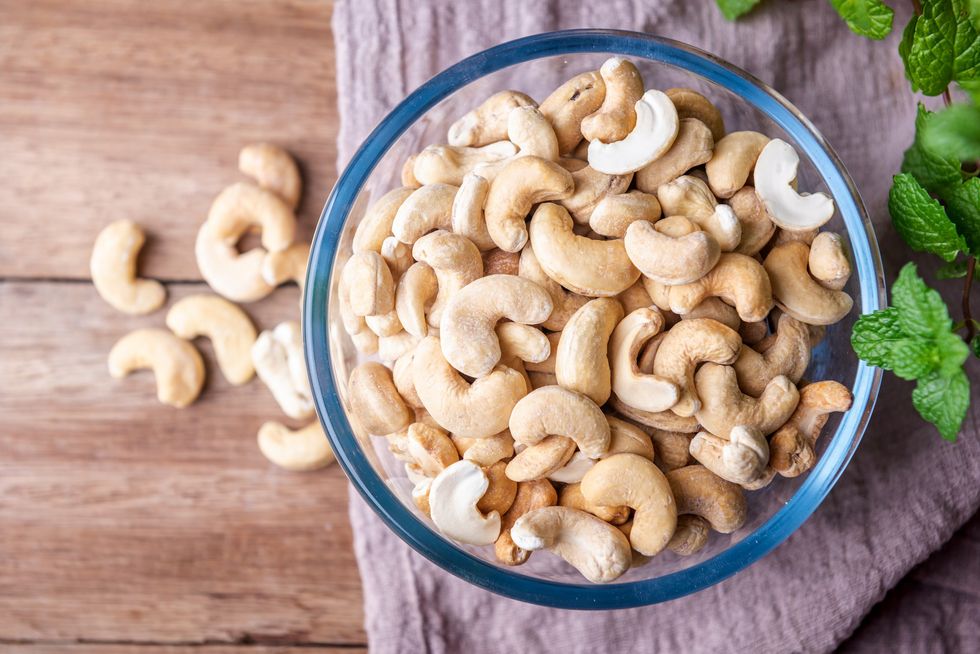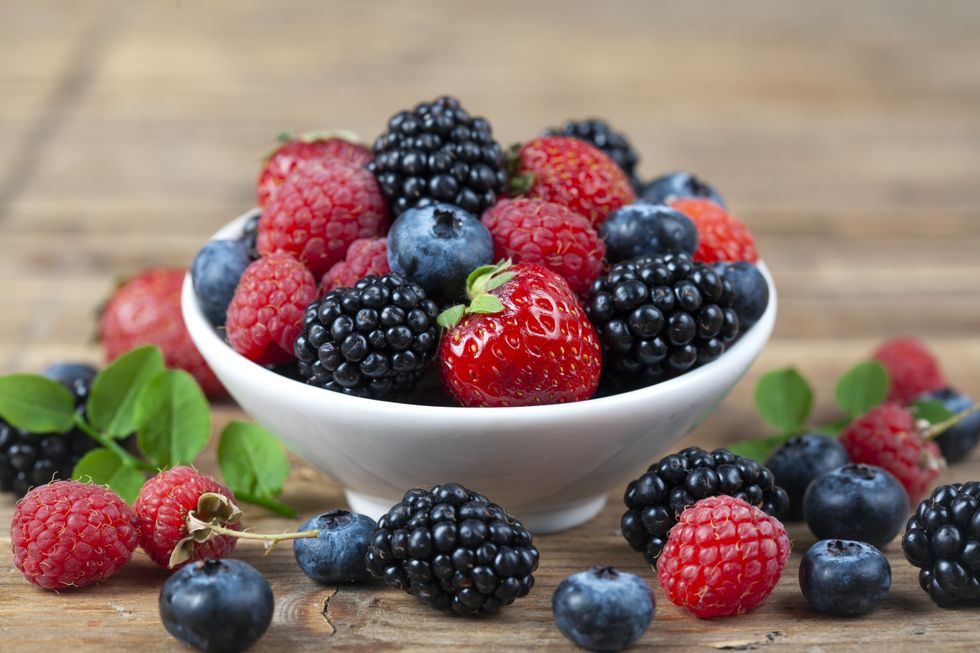Skin doctor shares 5 food swaps that boost collagen production – 'An essential building block!'

While topical skin care is key for a glowing complexion, eating the right foods can also make a difference
Don't Miss
Most Read
Collagen is the most abundant protein in the human body, providing the skin with crucial structure and support.
From as early as our mid-20s, collagen production decreases, causing fine lines and wrinkles. Alongside this, depleting elastin levels results in saggy, loose skin.
While it's not possible to restore elastin in the body, experts believe that both topical and oral collagen use can have a great impact on the skin.
Of the two, oral collagen in the form of supplements, powders, and foods is believed to be more effectively absorbed by the body.
Thankfully, Dr Majad Hussain, co-founder of prescription dermatology service MiQuest, has revealed that a complete dietary overhaul is not required to achieve results.
In fact, just a few simple swaps will help you consume more collagen and, in turn, build the "essential building block" for healthy skin.
"Collagen comes from animals such as chickens, cows, and fish, so these are important considerations for anyone trying to increase their intake.
"However, don't forget that other nutrients such as vitamins C and E and the amino acids proline, lysine, and glycine are also important factors in collagen production.
The doctor shared his five "easy and effective" food swaps to boost your collagen intake and "achieve your skin care goals".
LATEST DEVELOPMENTS:

'Nuts contain several vitamins and minerals that play an important role in collagen production'
|GETTY
Chicken thigh instead of chicken breast
"Chicken is widely seen as one of the most abundant dietary sources of collagen, but some people may not know that there are varying amounts depending on the part.
"The bird's thigh muscles are more active in its daily movements, therefore requiring more connective tissue.
"Thighs can have a collagen content of around three or four per cent, while breast meat can be between one and two per cent."
Snack on hazelnuts or cashews instead of crisps
"While pure collagen only comes from animal sources, nuts contain several vitamins and minerals that play an important role in collagen production.
"Hazelnuts support the process by providing copper, an important building block for forming collagen, and vitamin E, an anti-inflammatory agent which helps protect cells from oxidative stress, a key driver of skin ageing.
"Cashews also contain vitamin E, as well as zinc, which aids enzymes that play a key role in collagen stability."

'Vitamin C, found in a range of fruits, helps convert amino acids proline and lysine into collagen'
| GETTYFruit for breakfast instead of pastries
"Vitamin C, found in a range of popular fruits, helps convert amino acids proline and lysine into collagen, as well as preventing free radicals from causing cell damage.
"Good sources include oranges, grapefruit, kiwi and mango, as well as berries such as strawberries and blueberries.
"On the other hand, foods high in refined sugars and carbohydrates, such as breakfast pastries, can promote collagen fibre-damaging Advanced Glycation End Products (AGEs)."
Fish instead of processed meats in sandwiches
"Fish such as tuna and salmon are good sources of dietary collagen, as well as omega-3 fatty acids, which can help reduce inflammation in the skin.
"Meanwhile, meats that have been heavily processed, such as salami, ham, bacon or turkey, can contain high levels of sodium and preservatives, which can dry out our complexions.
"With sandwiches being an important part of what many people eat daily, it could be useful to swap out processed meats for skin-boosting fish."
Dark chocolate instead of milk chocolate
"Chocolate is arguably one of the country's most loved foods, and simply swapping your regular choice for dark chocolate can make a big difference to collagen production.
"The dark variety, often 85 per cent or more cacao bean content, is rich in useful nutrients such as iron, manganese, copper and antioxidant flavonoids.
"Milk chocolate, on the other hand, can be high in processed sugar, which can work against collagen production, so it’s important to check the sugar content next time you are purchasing a treat."
As well as making dietary adjustments, small tweaks to your skin care routine can work wonders for your complexion – especially when the season changes.
A skin care expert recently shared six transitions she makes between summer and autumn for a resilient glow".











